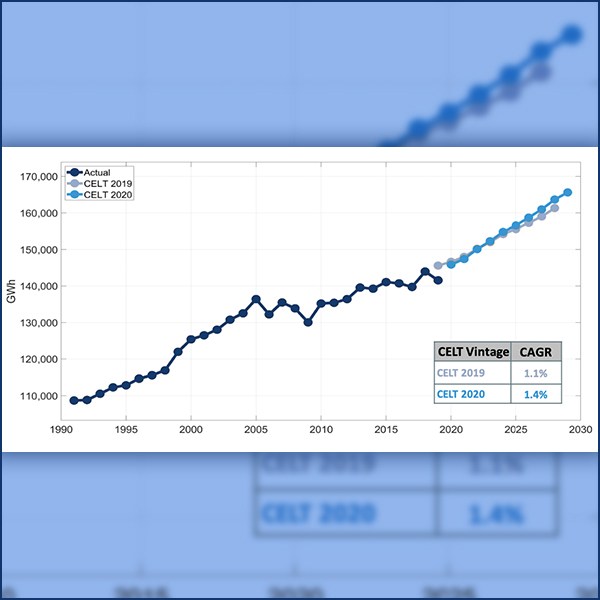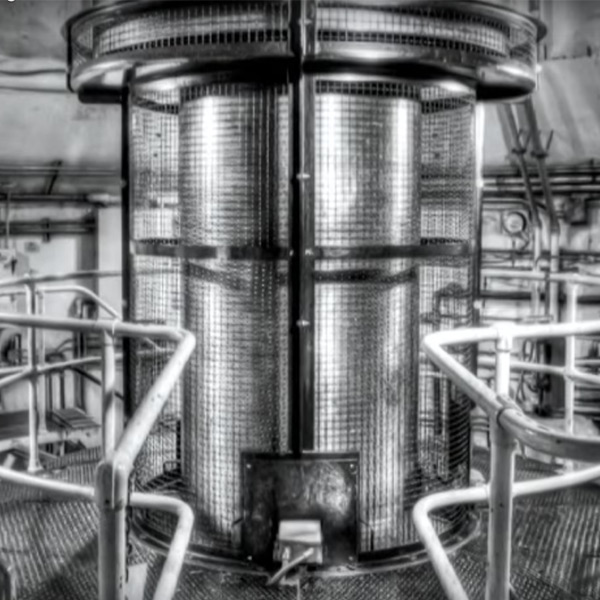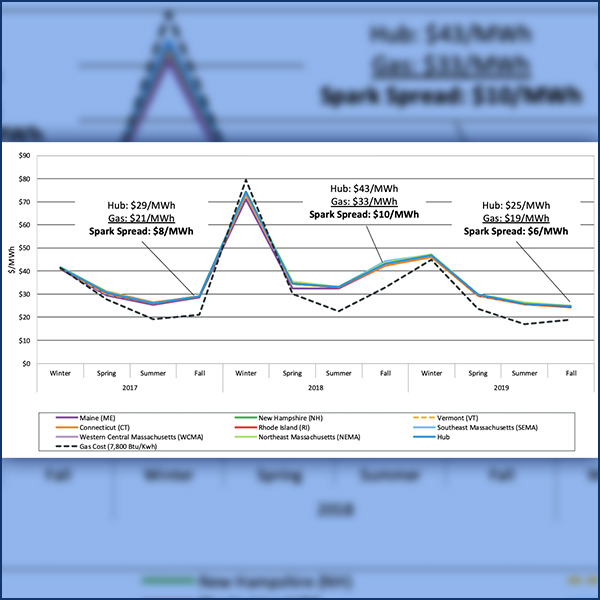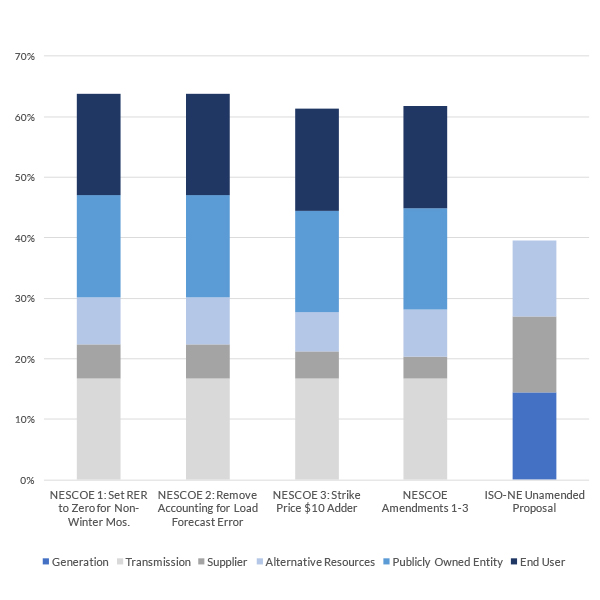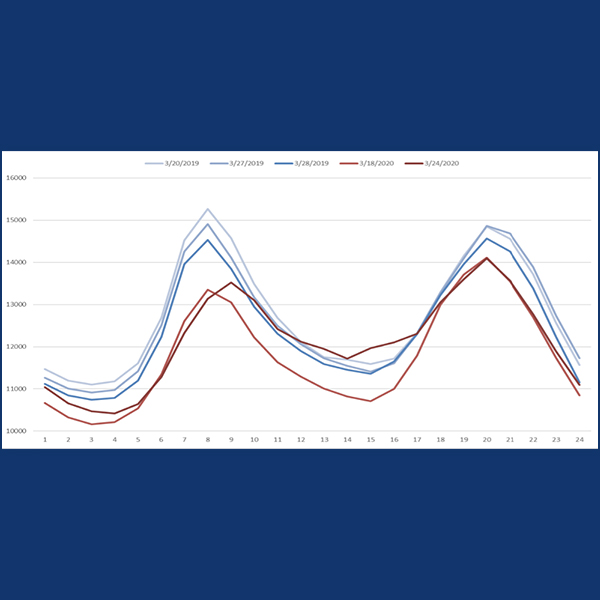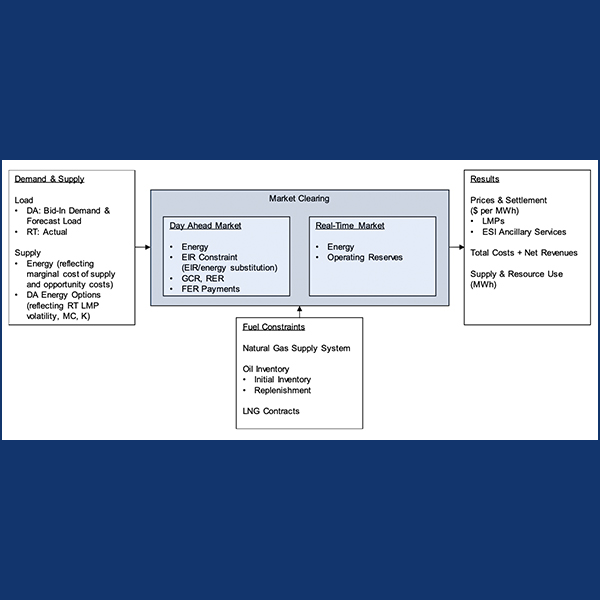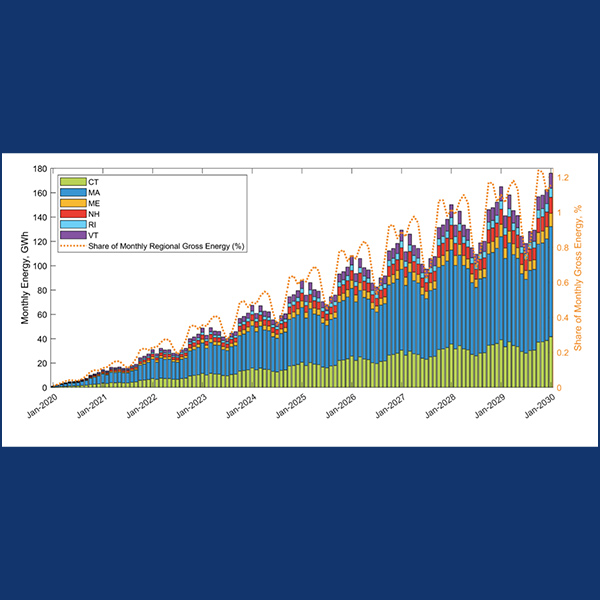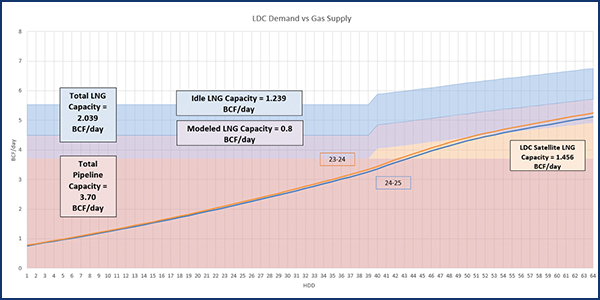ISO New England (ISO-NE)
ISO-NE energy demand has fallen 3 to 5% since stay-at-home orders began being implemented across New England, the NEPOOL Reliability Committee heard.
FERC rejected ISO-NE’s request to rehear its decision requiring the RTO to revise its energy storage rules to account for a resource’s state of charge in the day-ahead market.
ISO-NE’s wholesale market costs last fall declined 38% year over year to $1.5 billion, with both energy and capacity market costs decreasing significantly.
ISO-NE will file two versions of its Energy Security Improvements market design with FERC after NEPOOL's Participants Committee approved a modified version.
ISO-NE CEO Gordon van Welie told the NEPOOL Participants Committee that the RTO's emergency operation procedures have been implemented smoothly.
FERC reaffirmed its conclusion that the results of ISO-NE’s 2013/14 Winter Reliability Program were just and reasonable despite the fact that the largest participants may have had market power.
ISO-NE’s Energy Security Improvements initiative hit a snag when the NEPOOL Markets Committee failed to recommend it to the Participants Committee.
FERC accepted changes to the New England Transmission Owners’ interconnection study rules but ordered changes to the interconnection agreement.
Stakeholders asking for information on proposals generated by ISO-NE’s first competitive transmission solicitation in December.
At the NEPOOL Reliability Committee, stakeholders pushed back on ISO-NE’s draft assumptions on improving system fuel security.
Want more? Advanced Search
